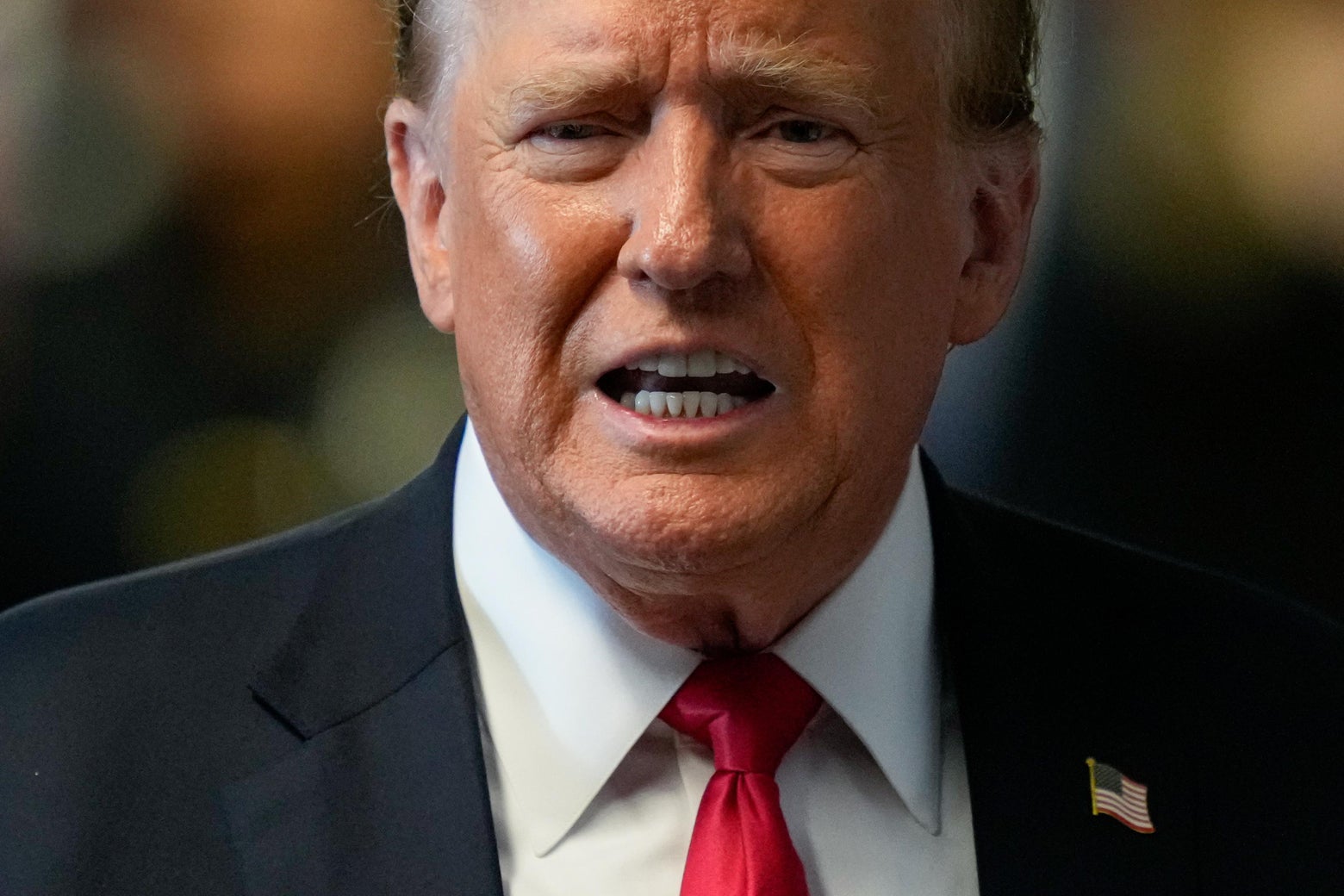The Theories About Trump’s High Polling Numbers Made Me Realize Something
Politics
Welcome to How Bad Is This, Really?, a recurring feature in which we take the temperature on how things are looking in the presidential election and what seems likely to happen in November. Eric Levitz had a good piece in Vox Tuesday about why Donald Trump is polling so well. Trump, as he explains, is doing much better than he did four years ago among younger voters, including Black and Hispanic voters, particularly those who tell pollsters that they are generally suspicious of U.S. institutions (government, business, etc.).
This doesn’t intuitively make a lot of sense. Biden and Trump are the same people that they were four years ago, and the Democratic and Republican parties are mostly the same. The president is old, sure, but he was old in 2020 too. Trump is also the same guy that he was then, perhaps more so; heck, just yesterday he was in the news for having inadvertently compared himself with Hitler during a meeting with Jewish donors.
The economy is also looking good for Biden these days, or should be. Inflation has slowed down—and, in any case, high prices don’t seem to have caused him to lose significant support in other age groups. Unemployment is historically low. U.S. support for the war in Gaza may be morally abhorrent to many people, but a very small percentage of younger voters say it’s an important issue for them. And when polltakers ask these younger, distrustful voters who they plan to vote for in local elections, they say the same thing they used to—which is generally that they support Democrats.
Something perplexing is also going on with Trump’s criminal trial in New York, where closing arguments are getting underway. The trial has certainly highlighted what you might call the ex-president’s lack of trustworthiness—as Mother Jones notes, even the people who were working with Trump at the time to suppress Stormy Daniels’ story assumed he’d had a sexual relationship with Daniels shortly after his wife had given birth. (He denies it.) But it hasn’t had any noticeable effect on whether voters think he should be the next president of the U.S.
Levitz has a decent theory about all of this: Trump is such a singularly compelling and unpredictable figure that he’s formed a new coalition of voters who just want to “burn it all down.” Polling expert Kristen Soltis Anderson, writing in the New York Times, ventured that Trump, like Oprah Winfrey, is the kind of person whom some TV-watching Americans have simply and permanently decided that they trust—regardless of whether elite smart alecks believe that that trust is justified on the merits. Levitz suggests that this reputation might be helping Trump in particular at the moment because COVID vaccine mandates and TikTok conspiracy personalities have widened the cohort of Americans who are distrustful. And he suggests that as an incumbent old guy president, Biden has become an equally and oppositely singular totem of the institutions and social rules that some Americans want to burn down.
Now, look—two weeks ago, when I issued an anxiety rating of three shovels, presidential polls were basically the same as they are now. But two things have changed since then. For one, I’ve noticed that when writers like Levitz and Anderson try to explain what’s happening in politics, they have to pull together several disparate ideas—the decline of the Black church, federal COVID mandates, the 1986 debut of a Chicago-based talk show—to make guesses about why we might end up with a result in November (i.e., Trump winning) that would be a significant outlier from a number of historic patterns. A Trump victory would be an anomaly, considering the typical advantages of incumbency and the success of presidents running for reelection during periods of economic growth; it would also diverge from the very recent trend of underperformance by candidates associated with Donald Trump.
As Levitz notes, it would also depart from current trends, identified elsewhere in the same polls, regarding relative preferences for Democrats and Republicans. Simply put, there’s a difference between refusing to acknowledge the presidential polls or claiming Biden is actually ahead—that’s not what I’m suggesting, Isaac Chotiner, please don’t interview me!—and treating their predictive significance with some skepticism, given how early in the race it is and how unusual they are relative to fundamentals. (John Kerry and Mitt Romney led George W. Bush and Barack Obama in several polls taken in May 2004 and May 2012, respectively.) Even numbers people know that you need to run a sanity test sometimes, or so I’ve read.
The other thing that has happened in the past two weeks is that the weather finally became “nice” where I live. (Which is New Jersey—sometimes you can barely smell the Superfund sites!) The sun is aiming itself through climbing branches and viridescent leaves, leaving spotted kaleidoscopic patterns on children as they run back and forth. With every tranquil rush of a dusty breeze, time somehow seems as if it is both infinitely still and slipping painfully away. Summers, dear reader! We will experience only so many of them in a lifetime, especially if Donald Trump wins reelection and puts bloggers in a gulag. (The blog gulag’s location? New Jersey.) In sum, the hour that is upon us is one for walking in the friscalating dusklight, not for worrying about polls; there will be colder months ahead for that.
Thus we conclude with our patented Shovel Meter—a measure of exactly how sedated you might want to be at the moment, on a scale of one to five shovel blows to the head, if you’re concerned about the reelection of Donald Trump—set at a mere one shovel. Let’s all go fly kites! (I have no idea how to fly a kite.)
Photo illustration by Slate. Photos by Ben Mathis-Lilley and Getty Images Plus.
Keywords: Donald Trump, Joe Biden, Polls, 2024 Campaign
